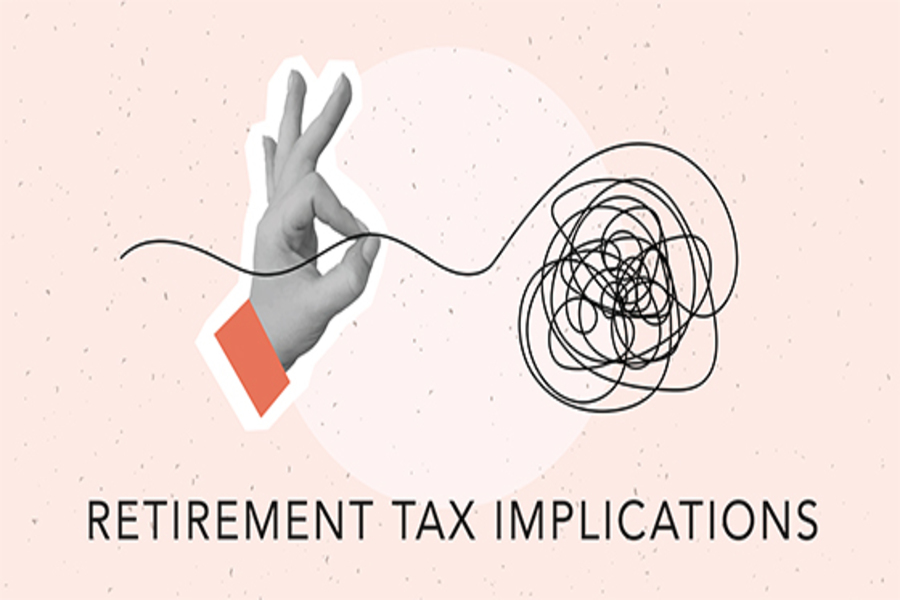If you’re getting ready to file your 2024 tax return and your tax bill is higher than you’d like, there may still be a chance to lower it. If you’re eligible, you can make a deductible contribution to a traditional IRA until this year’s April 15 filing deadline and benefit from the tax savings on your 2024 return. Who’s eligible? You can make a deductible contribution to a traditional IRA if: You (and your spouse) aren’t an active participant in an employer-sponsored retirement plan, or You (or your spouse) are an active participant in an employer plan, but your modified adjusted gross income (MAGI) doesn’t exceed certain levels that vary from year-to-year by filing status. . For 2024, if you’re a married joint tax return filer and you’re covered...

The Child Tax Credit (CTC) has long been a valuable tax break for families with qualifying children. Whether you’re new to claiming the credit or you’ve benefited from it for years, it’s crucial to stay current on its rules and potential changes. As we approach the expiration of certain provisions within the Tax Cuts and Jobs Act (TCJA) at the end of 2025, here’s what you need to know about the CTC for 2024, 2025 and beyond. Current state of the credit Under the TCJA, which took effect in 2018, the CTC was increased from its previous level of $1,000 to $2,000 per qualifying child. The TCJA also made more taxpayers eligible for the credit by raising the income threshold at which the credit begins to phase...
Retirement is often viewed as an opportunity to travel, spend time with family or simply enjoy the fruits of a long career. Yet the transition may bring a tangle of tax considerations. Planning carefully can help you minimize tax bills. Below are four steps to take if you’re approaching retirement, along with the tax implications. 1. Consider your post-career lifestyle Begin by assessing what retirement might look like for you. For example, will you relocate to a different state or downsize by selling your home? Will you continue to work part-time? Tax implications: Moving to a state with lower income or property taxes may stretch your retirement savings. If you sell your home and the capital gain exceeds $250,000 ($500,000 for married couples filing jointly), you’ll need...
Chances are, you’re more concerned about your 2024 tax return right now than you are about your 2025 tax situation. That’s understandable because your 2024 individual tax return is due to be filed by April 15 (unless you file for an extension). However, it’s a good time to familiarize yourself with tax amounts that may have changed for 2025 due to inflation. Not all tax figures are adjusted annually for inflation, and some amounts only change when Congress passes new laws. In addition, there may be tax changes due to what’s happening in Washington. With Republicans in control of both the White House and Congress, we expect major tax law changes in the coming months. With that in mind, here are some Q&As about 2025 tax limits. I...
The IRS announced that 2025 filing season for individual income tax returns started on January 27. That’s when the agency began accepting and processing 2024 tax year returns. Even if you typically don’t file until much closer to the mid-April deadline (or you file for an extension), you may want to file earlier this year. The reason is you can potentially protect yourself from tax identity theft. Here are some answers to questions taxpayers may have about filing. How can your tax identity be stolen? Tax identity theft occurs when someone uses your personal information — such as your Social Security Number — to file a fraudulent tax return and claim a refund in your name. One of the simplest yet most effective ways to protect yourself from...
Once you reach age 73, tax law requires you to begin taking withdrawals — called Required Minimum Distributions (RMDs) — from your traditional IRA, SIMPLE IRA and SEP IRA. Since funds can’t stay in these accounts indefinitely, it’s important to understand the rules behind RMDs, which can be pretty complex. Below, we address some common questions to help you navigate this process. What are the tax implications if I want to withdraw money before retirement? If you need to take money out of a traditional IRA before age 59½, distributions are taxable, and you may be subject to a 10% penalty tax. However, there are several ways that you can avoid the 10% penalty tax (but not the regular income tax). They include using the money to...
As higher education costs continue to rise, you may be concerned about how to save and pay for college. Fortunately, several tools and strategies offered in the U.S. tax code may help ease the financial burden. Below is an overview of some of the most beneficial tax breaks and planning options for funding your child’s or grandchild’s education. Qualified tuition programs or 529 plans A 529 plan allows you to buy tuition credits or contribute to an account set up to meet your child’s future higher education expenses. State governments or private institutions establish 529 plans. Contributions aren’t deductible. They’re treated as taxable gifts to the child, but they’re eligible for the annual gift tax exclusion ($19,000 in 2025). If you contribute more than the annual exclusion limit...
Saving for retirement is a crucial financial goal and a 401(k) plan is one of the most effective tools for achieving it. If your employer offers a 401(k) or Roth 401(k), contributing as much as possible to the plan in 2025 is a smart way to build a considerable nest egg. If you’re not already contributing the maximum allowed, consider increasing your contribution in 2025. Because of tax-deferred compounding (tax-free in the case of Roth accounts), boosting contributions can have a significant impact on the amount of money you’ll have in retirement. With a 401(k), an employee elects to have a certain amount of pay deferred and contributed to the plan by an employer on his or her behalf. The amounts are indexed for inflation each year...
When considering the advantages of U.S. Treasury savings bonds, you may appreciate their relative safety, simplicity and government backing. However, like all interest-bearing investments, savings bonds come with tax implications that are important to understand. Deferred interest Series EE Bonds dated May 2005 and after earn a fixed rate of interest. Bonds purchased between May 1997 and April 30, 2005, earn a variable market-based rate of return. Paper Series EE Bonds, issued between 1980 and 2012, were sold at half their face value. For example, you paid $25 for a $50 bond. The bond isn’t worth its face value until it matures. New electronic EE Bonds earn a fixed rate of interest that’s set before you buy the bond. They earn that rate for the first 20 years,...
There are two tax breaks that help eligible parents offset the expenses of adopting a child. In 2025, adoptive parents may be able to claim a credit against their federal tax for up to $17,280 of “qualified adoption expenses” for each child. This is up from $16,810 in 2024. A tax credit is a dollar-for-dollar reduction of tax. Also, adoptive parents may be able to exclude from an employee’s gross income up to $17,280 in 2025 ($16,810 in 2024) of qualified expenses paid by an employer under an adoption assistance program. Both the credit and the exclusion are phased out if the parents’ income exceeds certain limits detailed below. Parents can claim both a credit and an exclusion for the expenses of adopting a child. But they...











